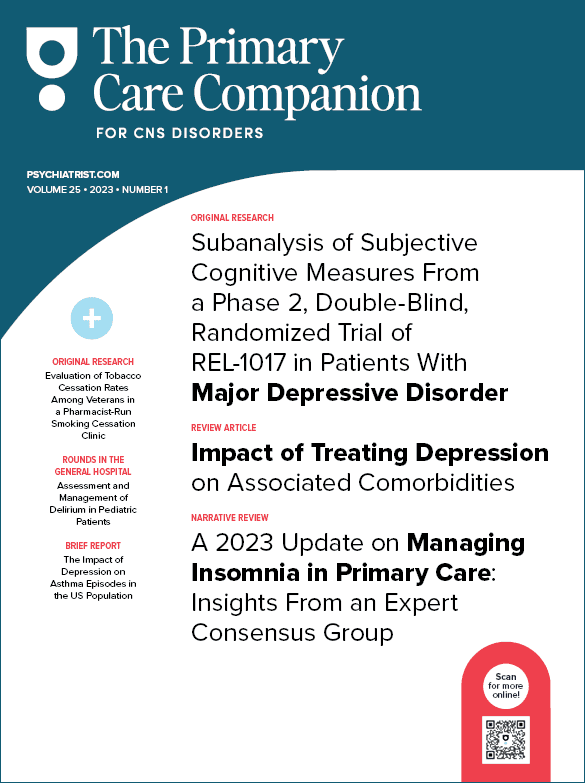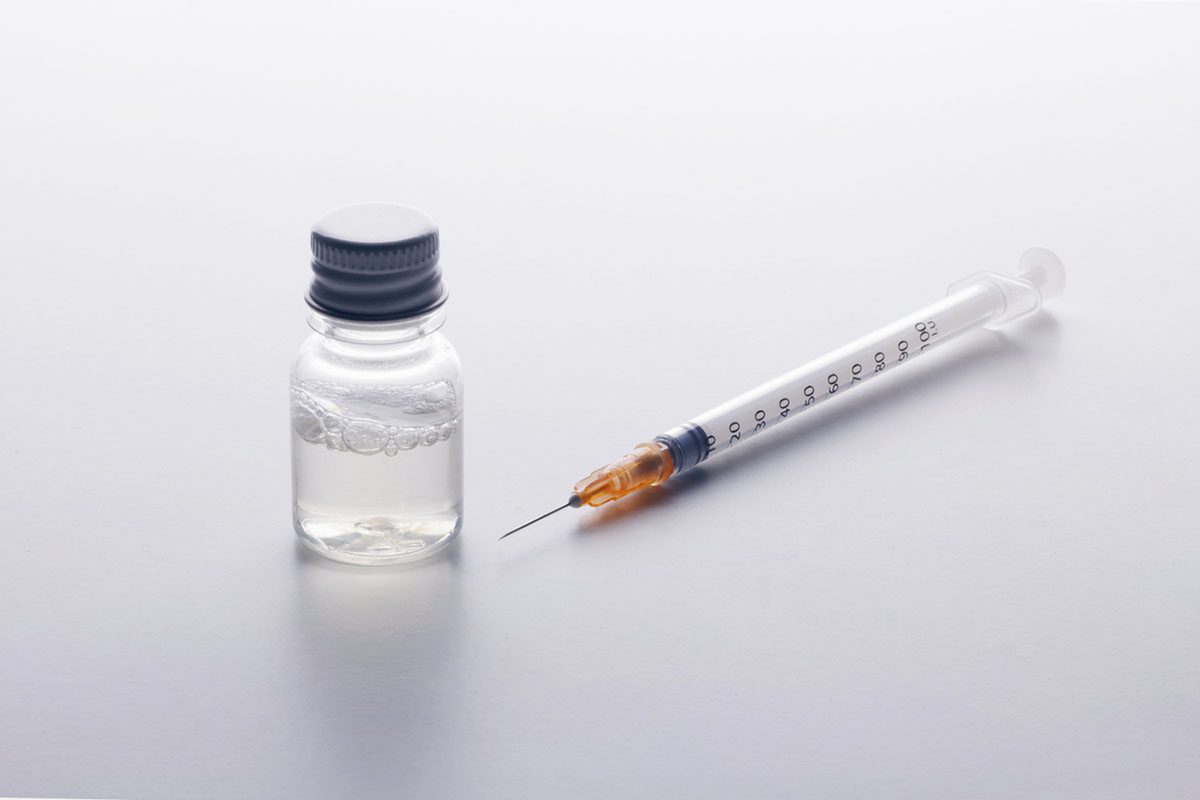Because this piece does not have an abstract, we have provided for your benefit the first 3 sentences of the full text.
To the Editor: Mr A was a 23-year-old man who developed a psychotic episode after using varenicline even though he had no personal or familial history of psychiatric disease. In the last month, he started to be suspicious of people and think that his friends would harm him. Consequently, he was unable to leave his house.
Psychosis Induced by Varenicline in a Patient With No Psychiatric History
To the Editor: Varenicline is an agent that attenuates the need for nicotine by exerting partial agonist effects on nicotinic receptors.1 It has been linked to the emergence of psychiatric symptoms in patients with psychiatric disorder.2-4
Case report. Mr A was a 23-year-old man who developed a psychotic episode after using varenicline even though he had no personal or familial history of psychiatric disease. In the last month, he started to be suspicious of people and think that his friends would harm him. Consequently, he was unable to leave his house. He thought that poisonous gas was being fed into the house, so he kept the windows open at all times. He also suspected that people were thinking bad thoughts about him, and they made fun of him. He felt irritated. He reported that he used varenicline 2 mg/d for the last 2 months for smoking cessation, and his symptoms appeared 20 days after starting treatment. A mental status examination showed him to be oriented to place and time and anxious in mood, with impaired abstract thinking and persecutory and reference delusions in thought content. Attention and concentration were poor, and his perception of insight and reality were weak. The patient was diagnosed with DSM-5 psychosis induced by varenicline; risperidone 4 mg/d was started. His Positive and Negative Syndrome Scale5 (PANSS) score was 101. At follow-up 2 weeks later, Mr A had achieved partial insight and his delusions regressed. At the next visit, his mood was euthymic. Delusions continued to regress, and he gained full insight. His PANSS score was 48, and his risperidone dose was gradually decreased and finally stopped.
Previously, varenicline has been shown to exacerbate psychosis in patients who have a history of psychiatric disease.2-4 Forcen et al6 reported that varenicline accelerated psychosis in a patient who had no record of psychiatric history, but later the patient was diagnosed with paranoid personality disorder. In Mr A, however, no cluster A personality disorder was detected after recovery of psychosis. Development of psychosis after initiation of varenicline for nicotine addiction in the patient presented here, a person who had no history of psychiatric disorder, is unusual. Varenicline stimulates the mesolimbic dopamine system and results in dopamine release.7 Increased dopamine may also trigger psychosis,7 as it did in Mr A. Therefore, clinicians are cautioned to be careful even when varenicline is prescribed for patients who have no history of psychiatric disorder.
References
1. Garrison GD, Dugan SE. Varenicline: a first-line treatment option for smoking cessation. Clin Ther. 2009;31(3):463-491. PubMed doi:10.1016/j.clinthera.2009.03.021
2. Gupta A, Bastiampillai T, Adams M, et al. Varenicline induced psychosis in schizophrenia. Aust N Z J Psychiatry. 2012;46(10):1009. PubMed doi:10.1177/0004867412444993
3. Liu ME, Tsai SJ, Yang ST. Varenicline-induced mixed mood and psychotic episode in a patient with schizoaffective disorder. CNS Spectr. 2009;14(7):346. PubMed doi:10.1017/S1092852900022975
4. DiPaula BA, Thomas MD. Worsening psychosis induced by varenicline in a hospitalized psychiatric patient. Pharmacotherapy. 2009;29(7):852-857. PubMed doi:10.1592/phco.29.7.852
5. Kay SR, Fiszbein A, Opler LA. The Positive and Negative Syndrome Scale (PANSS) for schizophrenia. Schizophr Bull. 1987;13(2):261-276. PubMed doi:10.1093/schbul/13.2.261
6. Forcen FE, Martinez FL, Moya AM. Varenicline precipitating psychosis in a patient with no previous psychiatric history: a case report of a Spanish patient who was later diagnosed with paranoid personality disorder. Clin Schizophr Relat Psychoses. 2012;5(4):221-223. PubMed doi:10.3371/CSRP.5.4.7
7. Stahl SM. Disorders of reward, drug abuse and their treatment. In: Stahl SM, Grady MM, eds. Stahl’s Essential Psychopharmacology. New York, NY: Cambridge University Press; 2008:943-1011.
aDepartment of Psychiatry, Abant Ä°zzet Baysal University, Bolu, Turkey
Potential conflicts of interest: None.
Funding/support: None.
Previous presentation: Presented as a poster at the Psychopharmacology Therapeutics Update; November 15-18, 2012; Antalya, Turkey.
Patient consent: Informed consent was obtained from the patient to publish this case report.
Published online: August 17, 2017.
Prim Care Companion CNS Disord 2017;19(4):15l01918
https://doi.org/10.4088/PCC.15l01918
© Copyright 2017 Physicians Postgraduate Press, Inc.
Enjoy free PDF downloads as part of your membership!
Save
Cite
Advertisement
GAM ID: sidebar-top




